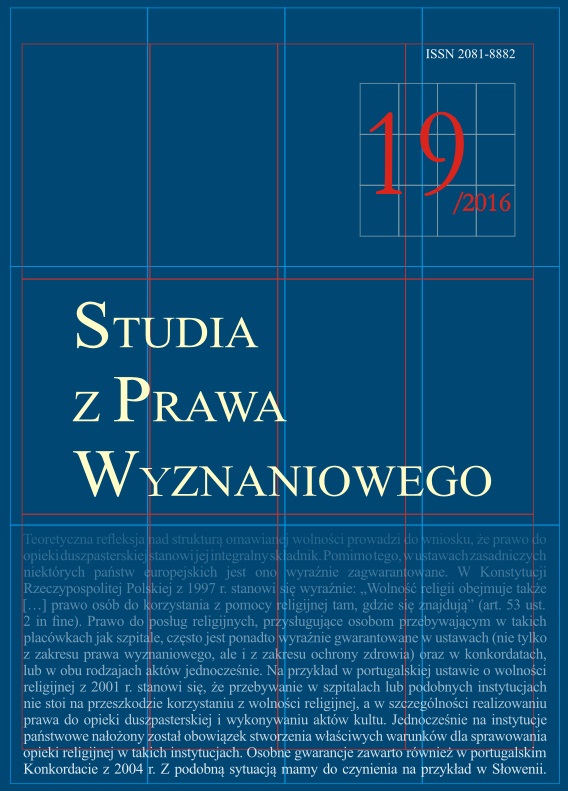Możliwość rezygnacji z pracy jako gwarancja ochrony wolności religijnej pracownika? Specyfika wyroku Europejskiego Trybunału Praw Człowieka w sprawie Eweida i inni przeciwko Zjednoczonemu Królestwu na tle dotychczasowego orzecznictwa strasburskiego
The possibility of leaving job as a guarantee of the protection of employee’s religious freedom? The specificity of the judgment of European Court of Human Rights on Eweida and others against the United Kingdom in the light of the established case la
Author(s): Grzegorz SzubtarskiSubject(s): Law, Constitution, Jurisprudence, Constitutional Law, Civil Law, Human Rights and Humanitarian Law, Law on Economics, EU-Legislation, Sociology of Law
Published by: Katolicki Uniwersytet Lubelski Jana Pawła II - Wydział Prawa, Prawa Kanonicznego i Administracji
Keywords: religious freedom; freedom of conscience and religion; Eweida and others; the European Court of Human Rights; work
Summary/Abstract: The article discusses the issues related to the manifestation of religious beliefs in the workplace on the basis of the case law of the European Commission of Human Rights and the European Court of Human Rights. It highlights the specificity of the judgment in Eweida and others against the United Kingdom in the light of the previous jurisprudence of the Strasbourg authorities. In an earlier case law, the Court accepted the principle according to which the ability to opt out of work is sufficient protection for employee’s religious freedom and therefore there is no violation of the rights guaranteed by Article. 9 of the European Convention on Human Rights. Therefore the Court's case law does not adequately protected employee’s religious freedom. In the judgment in Eweida and others against the United Kingdom, the Court stated that it can not continue applying this principle and replaced it with a test of proportionality, according to which will analyze limitations imposed on the employee's in the context of the legitimate aim of the restrictions and the proportionality of the measures used for its achievements. Further application of this principle and the importance of this judgment will be seen in the light of future case law.
Journal: Studia z Prawa Wyznaniowego
- Issue Year: 2016
- Issue No: 19
- Page Range: 159-174
- Page Count: 16
- Language: Polish

